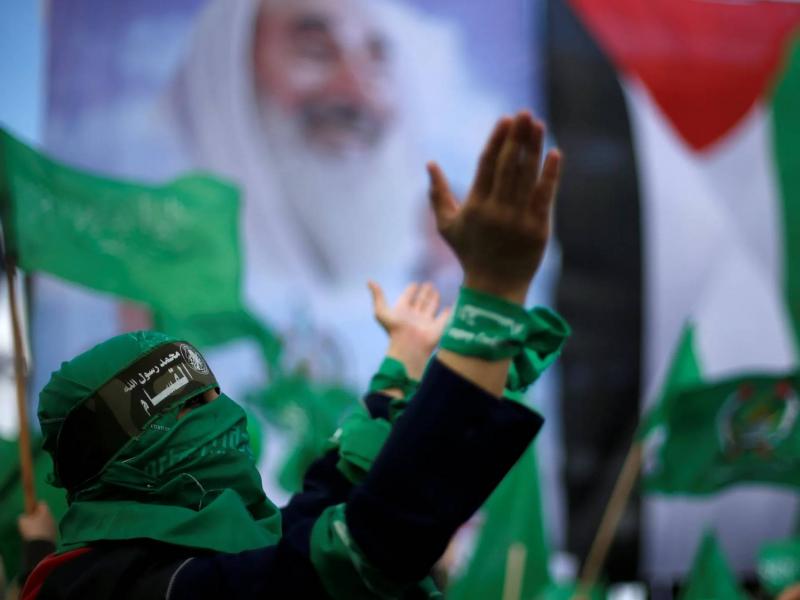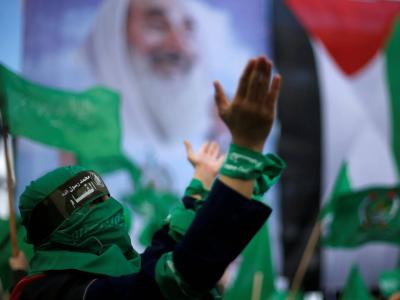Those who have followed the statements of Hamas leaders since the first day of the genocidal war against the Palestinian people, culminating in the remarks of leader Khaled Meshaal, reach the conclusion that Hamas is establishing an old and new idea: to be the sole and legitimate representative of the Palestinian people according to its own vision and plans. These plans simply suggest that the occupation of lands is a price for liberation, with the hope that the West Bank will become like Gaza, a rejected Iranian arm in the Middle East and the entire world. The liberation process that Hamas describes, which Meshaal continuously calls for, has brought about the opposite result, as it did not liberate an inch of land but instead restored the occupation, which is as clear as day, leaving no room for discussion. The land of Gaza was liberated, and it is now occupied again due to the October 7 attack, which the group classifies as a major liberation battle.
Hamas has previously attempted, repeatedly, to erase the Palestinian Liberation Organization (PLO) with the support of regional Arab and non-Arab countries. When all these attempts failed, they sought to tame the PLO and use it as a tool to achieve their grand Muslim Brotherhood project aimed at controlling Arab states, starting from a profoundly just liberation cause: the Palestinian issue.
However, an urgent question arises: If Hamas manages to realize its dream of dominating the PLO, which countries will provide it with political and financial support? Will we return to the previous phase where bundles of dollars enter in bags from Doha? Does this represent a foundation for a strong and healthy economy, or is it merely a sedative for the Palestinian people to prevent them from rising against it due to poverty? Will the United States and Israel allow Qatar to resume the open financing of Hamas as occurred before? This financing was not subject to deductions like the clearance funds Israel transfers to the Palestinian Authority, and when funding decreased due to strained relations between Hamas and Qatar, Benjamin Netanyahu publicly demanded its increase. Will history repeat itself amid recent tensions between the two parties and the discussions among media about the expulsion of Hamas leaders from the Qatari capital? What will Hamas add to the PLO in terms of legitimacy and international solidarity, or will it lose its legitimacy and globally acceptable mediation?
The leadership of the Palestinian Liberation Organization, which largely consists of Fatah, enjoys good relations with Arab countries and excellent relations with Gulf funding states, and there has been a noticeable recovery in its relationship with the UAE and Bahrain after the normalization crisis. It also has close relations with European Union countries. On the other hand, what relationships does Hamas have on the Arab and international levels? How will EU countries accept dealing with its leaders, some of whom are wanted for arrest by the International Criminal Court?
Another question is whether the Palestinian people, after their second catastrophe, need a leadership that brings them back to the political and diplomatic abyss, returning to zero in gaining legitimacy, or a legitimate leadership that serves as a lever to achieve their aspirations for freedom and liberation. The current leadership of the Palestinian Liberation Organization does not need to present or export itself to the world as Hamas urgently requires in these days, as it is classified as a terrorist movement in most capitals worldwide, including some Arab countries.
All of Hamas's propositions today take us back to erroneous and misleading leftist narratives at the beginning of the Palestinian revolution, often talking about a "revolutionary tide" and applying the Hanoi example, at the time naming the Jordanian capital Amman as the "Hanoi of the Arabs," which embroiled the organization in conflicts with the host Arab countries, as happened in Jordan decades ago. Those impulsive and unobjective ideas talked about this revolutionary tide, seeking to embroil Arab nations in a constant conflict with Israel, an approach that even Gamal Abdel Nasser himself rejected.
Funding, reconstruction, and legal and international legitimacy issues are pressing questions that Hamas's leadership must answer before starting to talk about changing and reforming the PLO to fit its own model. Their presence within the organization would politically damage it and serve as a carcinogenic cell, inevitably condemning the Palestinian liberation project to death and halting the train of recognition of the Palestinian state. It might even compel many countries to withdraw their recognition of the state of Palestine, which would have negative consequences for the Palestinian people and the issue as a whole.




